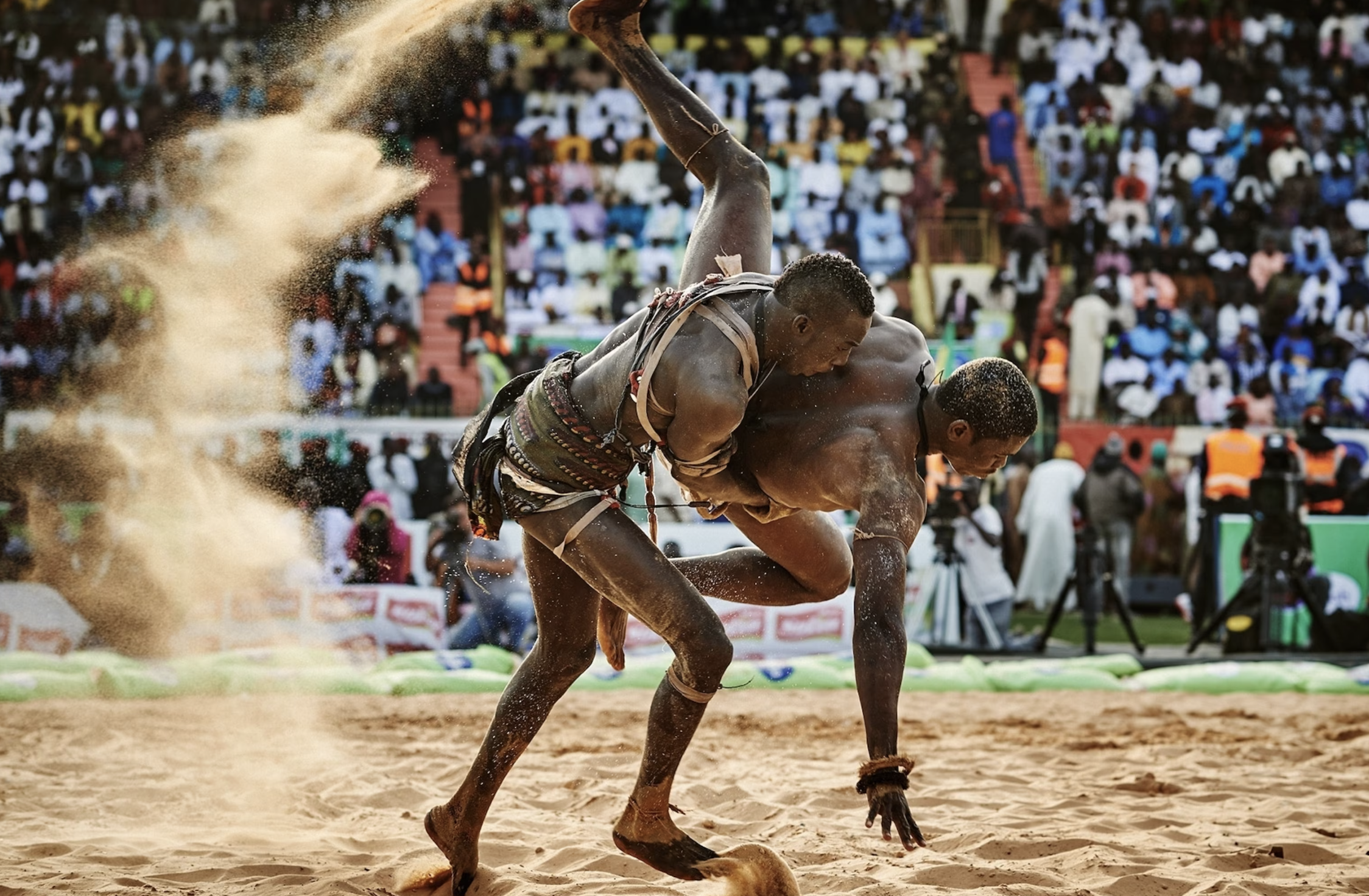
Africa is home to a vibrant array of traditional sports and games, each reflecting the continent’s diverse cultures and heritage. From the bustling arenas of Senegal to the coastal waters of East Africa, these activities are not only forms of entertainment but also important cultural practices that bring communities together.
Senegalese Wrestling (Laamb)
One of the most celebrated traditional sports in Africa is Senegalese wrestling, known locally as Laamb. This sport, which combines physical strength and martial skills, has deep roots in Senegalese culture. Wrestlers, often adorned with mystical charms and performing pre-match rituals, compete in sandy arenas to the cheers of enthusiastic crowds. Laamb is more than just a sport; it’s a cultural phenomenon that showcases the country’s heritage and spirit.
Stick Fighting in South Africa
In South Africa, stick fighting, known as Nguni stick fighting or simply as “intonga,” is a traditional sport practiced primarily by the Xhosa and Zulu communities. Participants use two long sticks—one for defense and the other for offense—engaging in duels that require agility, strategy, and endurance. Historically, this sport was a way for young men to demonstrate their bravery and fighting skills, and it continues to be an important cultural ritual.
Dhow Sailing Races
Coastal regions of East Africa, particularly around Zanzibar and the Kenyan coast, are known for their dhow sailing races. These traditional boats, with their distinctive triangular sails, have been used for centuries by Swahili fishermen and traders. Today, dhow races are major events that attract locals and tourists alike. These races are not only thrilling competitions but also celebrations of maritime heritage and craftsmanship.
Cultural Significance
Traditional sports and games in Africa are deeply intertwined with the continent’s social and cultural fabric. They often involve elaborate ceremonies, music, dance, and community gatherings, reinforcing social bonds and cultural identity. These activities are passed down through generations, preserving the history and traditions of various ethnic groups.
Global Recognition
In recent years, there has been growing international interest in Africa’s traditional sports. Events and festivals showcasing these games are gaining popularity, and efforts are being made to preserve and promote them globally. This recognition helps to highlight Africa’s rich cultural diversity and contributes to a greater appreciation of the continent’s heritage.
From the intense matches of Laamb in Senegal to the rhythmic stick fights in South Africa and the elegant dhow races along the East African coast, Africa’s traditional sports are a testament to the continent’s enduring cultural legacy. These activities continue to captivate and inspire, reflecting the dynamic and diverse spirit of Africa.
